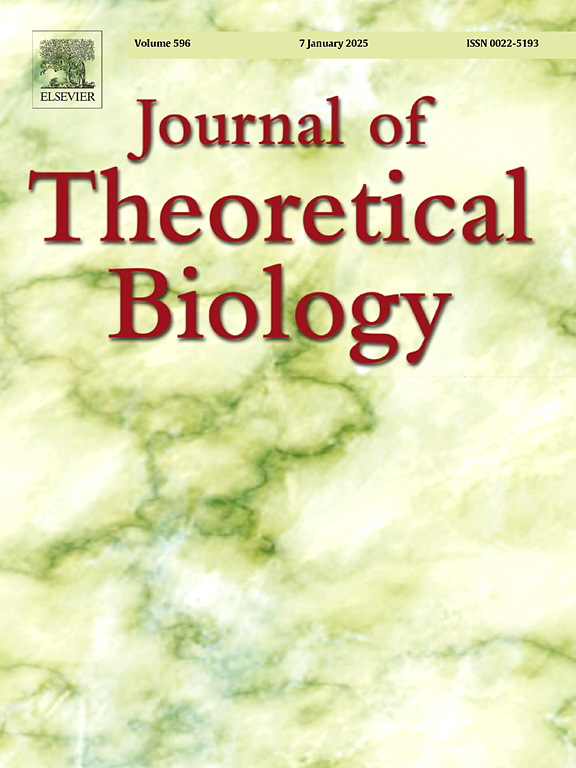Tradeoffs in the energetic value of neuromodulation in a closed-loop neuromechanical system
IF 1.9
4区 数学
Q2 BIOLOGY
引用次数: 0
Abstract
Rhythmic motor behaviors controlled by neuromechanical systems, consisting of central neural circuitry, biomechanics, and sensory feedback, show efficiency in energy expenditure. The biomechanical elements (e.g., muscles) are modulated by peripheral neuromodulation which may improve their strength and speed properties. However, there are relatively few studies on neuromodulatory control of muscle function and metabolic mechanical efficiency in neuromechanical systems. To investigate the role of neuromodulation on the system’s mechanical efficiency, we consider a neuromuscular model of motor patterns for feeding in the marine mollusk Aplysia californica. By incorporating muscle energetics and neuromodulatory effects into the model, we demonstrate tradeoffs in the energy efficiency of Aplysia’s rhythmic swallowing behavior as a function of the level of neuromodulation. A robust efficiency optimum arises from an intermediate level of neuromodulation, and excessive neuromodulation may be inefficient and disadvantageous to an animal’s metabolism. This optimum emerges from physiological constraints imposed upon serotonergic modulation trajectories on the energy efficiency landscape. Our results may lead to experimentally testable hypotheses of the role of neuromodulation in rhythmic motor control.
闭环神经机械系统中神经调节能量值的权衡。
由中枢神经回路、生物力学和感觉反馈组成的神经力学系统控制的节律性运动行为显示出能量消耗的效率。生物力学元素(例如,肌肉)通过周围神经调节来调节,这可能会提高它们的强度和速度特性。然而,关于神经机械系统中肌肉功能的神经调节控制和代谢机械效率的研究相对较少。为了研究神经调节对系统机械效率的作用,我们考虑了一个海洋软体动物进食运动模式的神经肌肉模型。通过将肌肉能量学和神经调节效应结合到模型中,我们证明了澳大利亚有节奏的吞咽行为的能量效率作为神经调节水平的函数的权衡。稳健的效率最佳产生于神经调节的中间水平,过度的神经调节可能效率低下,不利于动物的新陈代谢。这种最佳状态来自于对能量效率的5 -羟色胺调节轨迹施加的生理限制。我们的结果可能导致神经调节在节律运动控制中的作用的实验可验证的假设。
本文章由计算机程序翻译,如有差异,请以英文原文为准。
求助全文
约1分钟内获得全文
求助全文
来源期刊
CiteScore
4.20
自引率
5.00%
发文量
218
审稿时长
51 days
期刊介绍:
The Journal of Theoretical Biology is the leading forum for theoretical perspectives that give insight into biological processes. It covers a very wide range of topics and is of interest to biologists in many areas of research, including:
• Brain and Neuroscience
• Cancer Growth and Treatment
• Cell Biology
• Developmental Biology
• Ecology
• Evolution
• Immunology,
• Infectious and non-infectious Diseases,
• Mathematical, Computational, Biophysical and Statistical Modeling
• Microbiology, Molecular Biology, and Biochemistry
• Networks and Complex Systems
• Physiology
• Pharmacodynamics
• Animal Behavior and Game Theory
Acceptable papers are those that bear significant importance on the biology per se being presented, and not on the mathematical analysis. Papers that include some data or experimental material bearing on theory will be considered, including those that contain comparative study, statistical data analysis, mathematical proof, computer simulations, experiments, field observations, or even philosophical arguments, which are all methods to support or reject theoretical ideas. However, there should be a concerted effort to make papers intelligible to biologists in the chosen field.

 求助内容:
求助内容: 应助结果提醒方式:
应助结果提醒方式:


